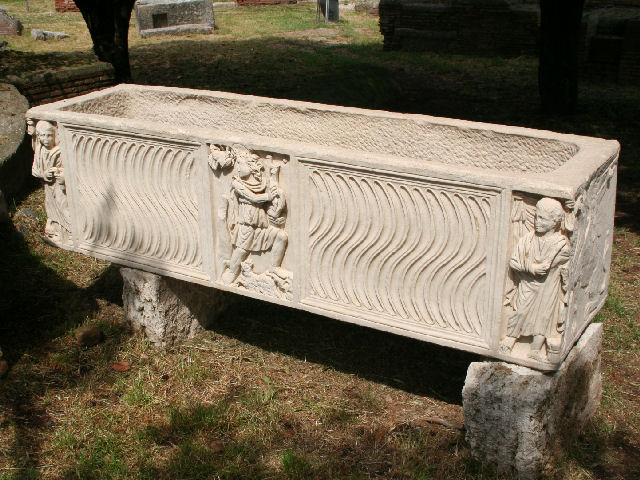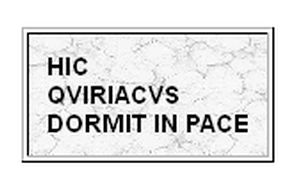
Requiescat In Pace?
Today these words are replaced by the phrase “rest in peace”. Wikipedia speaks of this as well, saying “Th[is] phrase was not found on tombstones before the eighth century.” Even though he sleeps in peace, was apparently replaced by rest in peace, the two expressions are not identical in meaning. The difference reflects a change in understanding of the condition of the dead by many mainstream churches.
Sleep vs. Rest
Peace is referred to in both phrases. The words on which we will focus our attention are sleep and rest. Sleep is a condition of unawareness to the events around us. It is temporary. If one merely sleeps, he can awaken. Rest, on the other hand, requires no loss of consciousness. One can rest even if wide awake.

Mainstream Churches After Christ
Mainstream churches espouse belief in an immortal soul, that is, that no human ever completely dies, but is transformed by releasing a living spirit at death of the body, destined for heavenly life. The person lives on in conscious existence. How does this compare with the teachings Jesus Christ imparted to his followers during his lifetime?
The Early Church of Jesus Christ
First century Christians were aware they would not only die, but they would be completely unconscious. In fact, they would no longer exist, except in God’s memory. But after the passage of many years, they would ‘stand up’, be raised again, to spirit life. Though they would remain at peace, resurrected Christians who had received the call to heaven would definitely not rest. They would be excited to take on their new assignment, their new responsibilities.
Other Christians, though not chosen to serve in heaven, would likewise be excited to take on their new assignments right here on earth. One of the first assignments is to teach those resurrected along with them who never knew the truths found in the Bible.
Thus, requiescat in pace is not truly an accurately descriptive phrase. The words were chosen based on an inaccurate concept of the state of those deceased.
Afterword: the above references do not completely accurately portray first century Christianity. Nevertheless, they come closer to that standard than mainstream churches do today. In addition, they reference the expression dormit in pace.
Note: You might also enjoy What is the Origin of Races?
References:

Do you know why this change came about? It seems quite a switch around from one view to the other – very interesting.
Would you think it presumptuous if I say I DO know? A great falling away from “the truth” was foretold in scripture. People would turn their ear away from true teachings in favor of “false stories.” One of these is that the dead all go to heaven (unless wicked, but few are labeled by their ministers as wicked), whereas the Bible says “the meek will inherit the earth.”
Perhaps I should have added a few specifics concerning the apostasy, Meg. It was foretold by Christ and Paul, both. The apostles acted as a restraint to the great “falling away”, but when the last of the apostles died, the restraint was gone. The infiltration of Greek philosophy and the development of a clergy class define the earliest stages. By the time of Emperor Constantine, the congregation was sufficiently weak to receive his attention. He effectively fused the adulterated “Christianity” with the pagan element. He severely pressured them into accepting the “Trinity”.